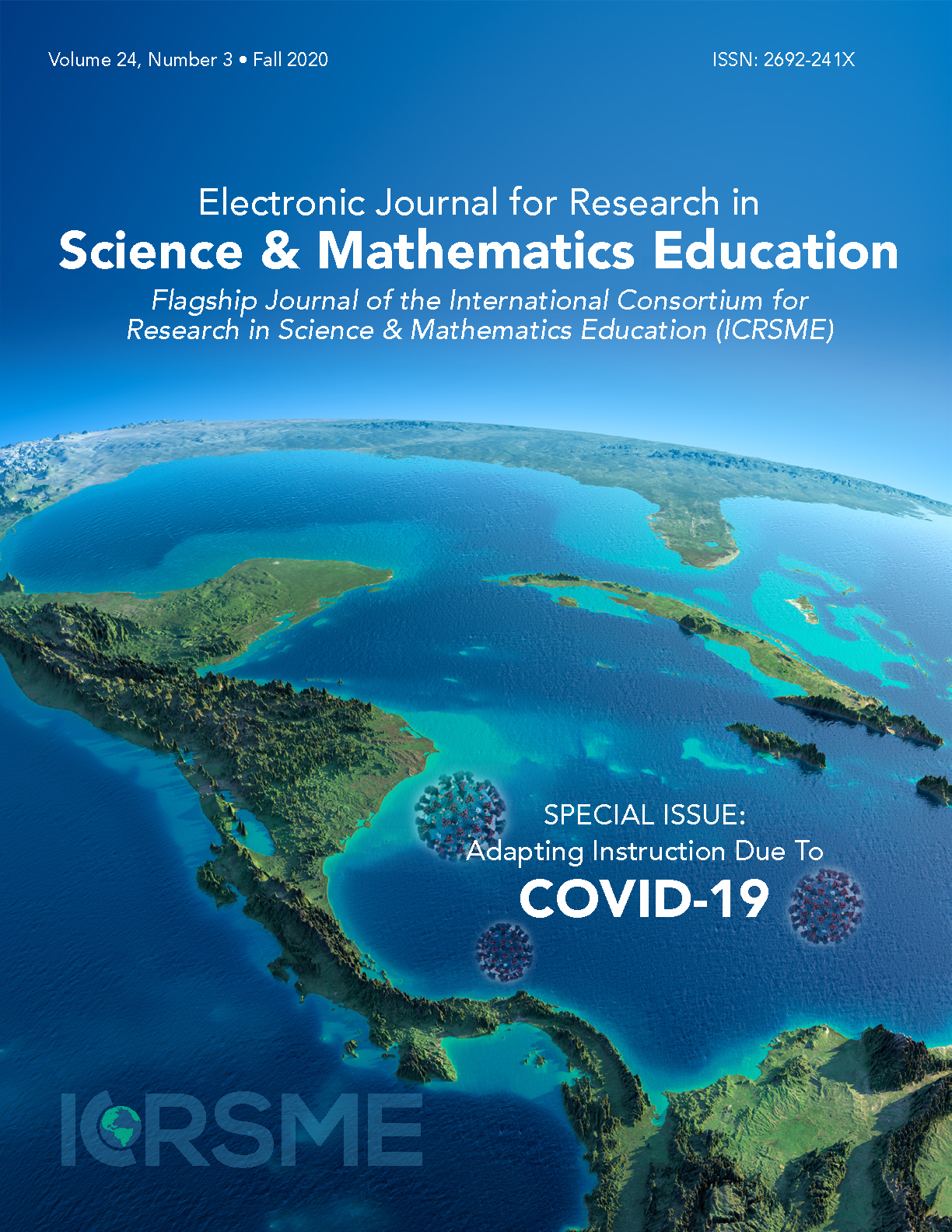Science Teacher Education in the Time of COVID-19: A Document Analysis
Main Article Content
Abstract
During the spring semester of 2020, education shifted in unprecedented ways due to a global respiratory pandemic. Along with the K-12 and university courses that were thrust online, education methods courses, existing in a nexus—often dependent on both education systems to achieve all learning goals, also transitioned to remote learning. In a document analysis, we analyzed the trends of many science teacher educators through a Facebook group, websites from professional organizations, and educator-created repositories. In the process, we identified five themes of discussion around the quick transition to emergency remote teaching: modification of teacher education, adoption of online interactive tools, how to address emergent concerns, the shifting foci of science methods courses, and collaboration with the larger community. While some aspects of this pandemic-teaching paradigm will emerge in the new normal of teaching, we expect that most practices will return to closer to their pre-pandemic states of hands-on and in-classroom learning. Through this analysis, we provide evidence of the resilience of teacher educators and how the field bands together to help through trying times.
Keywords: science teacher education; preservice; emergency remote teaching; online teaching; COVID-19; coronavirus; pandemic teaching
Article Details
© 2025 Electronic Journal for Research in Science & Mathematics Education (EJRSME)
